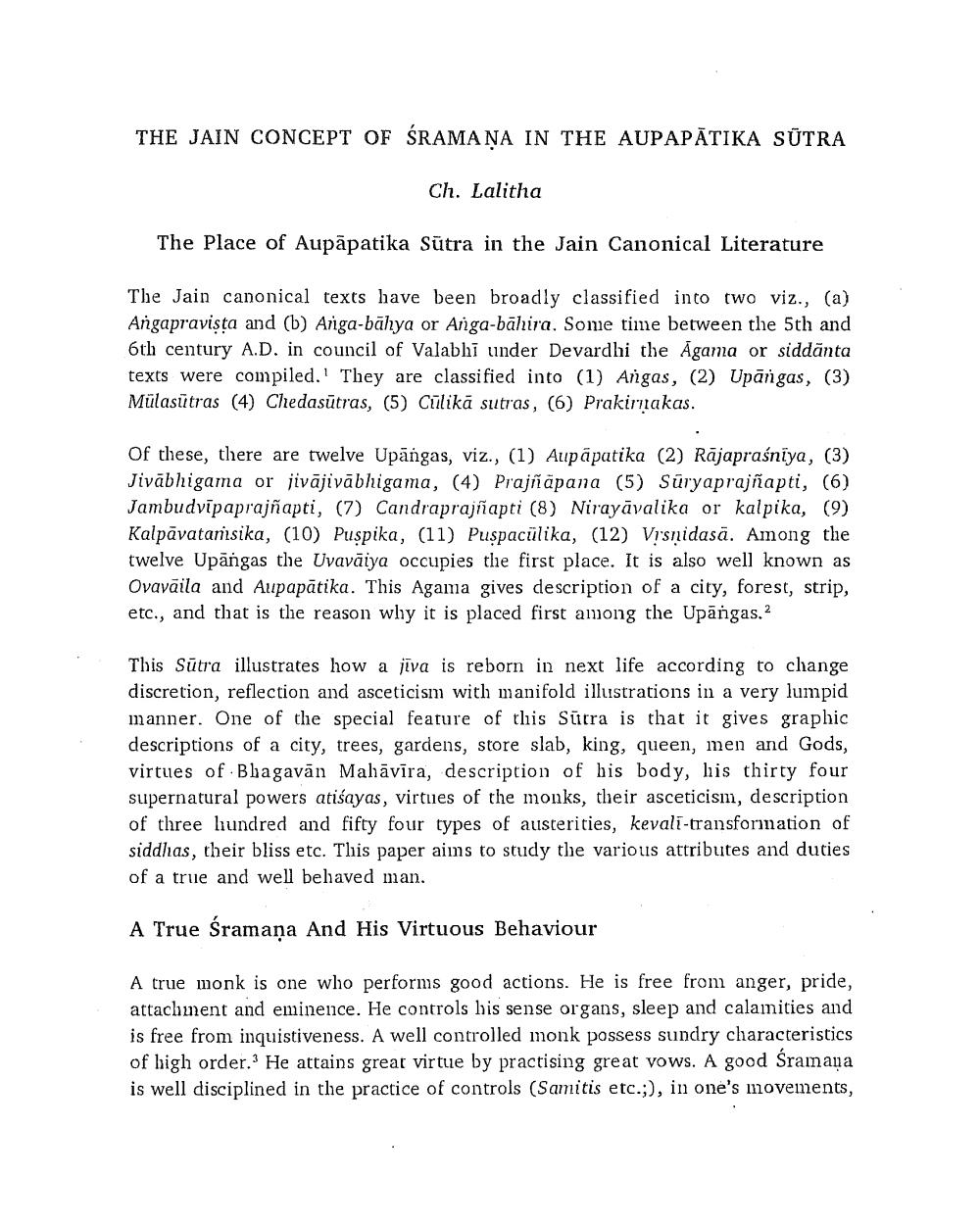________________
THE JAIN CONCEPT OF SRAMANA IN THE AUPAPĀTIKA SŪTRA
Ch. Lalitha
The Place of Aupāpatika Sūtra in the Jain Canonical Literature
The Jain canonical texts have been broadly classified into two viz., (a) Angapravista and (b) Anga-bahya or Anga-bahira. Some time between the 5th and 6th century A.D. in council of Valabhi under Devardhi the Agama or siddānta texts were compiled. They are classified into (1) Angas, (2) Upāngas, (3) Mülasūtras (4) Chedasūtras, (5) Culikä sutras, (6) Prakirṇakas.
Of these, there are twelve Upangas, viz., (1) Aupāpatika (2) Rajapraśnīya, (3) Jivabhigama or jivājivābhigama, (4) Prajñāpana (5) Suryaprajñapti, (6) Jambudvipaprajñapti, (7) Candraprajñapti (8) Nirayāvalika or kalpika, (9) Kalpavatamsika, (10) Puspika, (11) Puspacülika, (12) Vṛsṇidasā. Among the twelve Upangas the Uvavaiya occupies the first place. It is also well known as Ovavaila and Aupapātika. This Agama gives description of a city, forest, strip, etc., and that is the reason why it is placed first among the Upangas.2
This Sūtra illustrates how a jiva is reborn in next life according to change discretion, reflection and asceticism with manifold illustrations in a very lumpid manner. One of the special feature of this Sutra is that it gives graphic descriptions of a city, trees, gardens, store slab, king, queen, men and Gods, virtues of Bhagavan Mahāvīra, description of his body, his thirty four supernatural powers atisayas, virtues of the monks, their asceticism, description of three hundred and fifty four types of austerities, kevali-transformation of siddhas, their bliss etc. This paper aims to study the various attributes and duties of a true and well behaved man.
A True Śramaņa And His Virtuous Behaviour
A true monk is one who performs good actions. He is free from anger, pride, attachment and eminence. He controls his sense organs, sleep and calamities and is free from inquistiveness. A well controlled monk possess sundry characteristics of high order. He attains great virtue by practising great vows. A good Śramaṇa is well disciplined in the practice of controls (Samitis etc.;), in one's movements,




